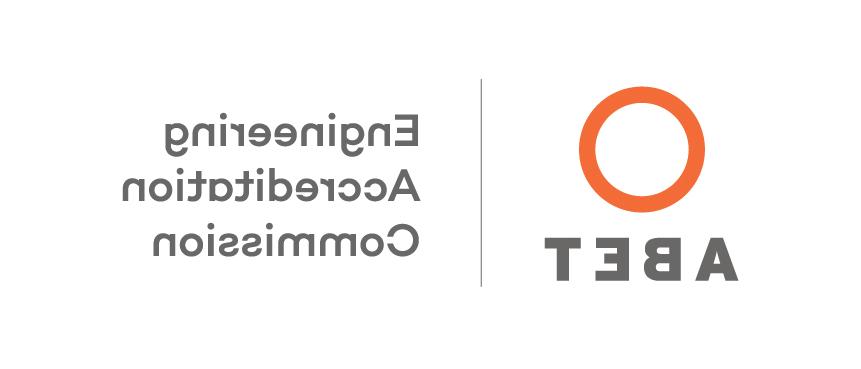支持页面内容
认证 & 评估
- 使命: The mission of the Bachelor Science degree program in 电 & 电子工程 (BSEEE) at CSUS is to provide an outstanding, hands-on education in 电 工程.
- 目标: The goal of the EEE Program is to provide students with a high quality education that will transform students into professional engineers who are prepared to meet the needs of society and adapt to rapidly changing technology.
认证
 The BSCE program is accredited by the 工程 认证 Commission (EAC) of ABET.
The BSCE program is accredited by the 工程 认证 Commission (EAC) of ABET.
评估委员会
庞静(主席)
穆罕默德Eltayeb
Praveen Meduri
Atousa Yazdani
2年期限. 2020年秋季- 2022年春季.
聚会时间:每个月的第二个和第四个星期五. 1 p.m. - 1:45 p.m.
EEE计划教育目标
The undergraduate program in 电 & 电子工程 is fundamental to the mission of the 工程学院 and 计算机科学 at CSUS. 5-years from graduation, graduates from our program will have the following:
- 核心知识: Our graduates will have active careers in 电 and Electronic engineering, or be actively engaged in a related career path.
- 知识澳门博彩官网: Our graduates will apply their knowledge and skills to solve practical engineering problems.
- 专业: Our graduates will demonstrate the professional skills, 比如高尚的道德标准, effective oral and written communications, 和团队合作, necessary to be productive engineers and to advance in their careers.
- 终身学习: Our graduates will continue to develop their skills and seek knowledge after graduation in order to adapt to advancing technology and the needs of society. This may be indicated by the graduate’s pursuit of an advanced degree or other formal instruction, and/or that the graduate has developed a professional specialty.
The objectives describe the features that are considered important in an outstanding education in 电 工程.
The program educational objectives are consistent with the University Mission, which can be summarized in the following two quotes from the University Policy Manual: "The University’s mission is guided by fundamental values which reflect its identity as a public, 区域, 全面的, 城市大学. 因此, 加州州立大学, 萨克拉门托 seeks to offer individuals the opportunity to realize their highest aspirations and become active and involved citizens for the good of the individual and society," and "We reaffirm the value of and need for education of the whole person in the tradition of a liberal undergraduate education. Building on the fundamental knowledge and skills acquired through a general education program, the University offers traditional liberal arts disciplines and professional studies which emphasize three critical curricular values - acquisition of knowledge, the development of critical thought processes, and the synthesis of knowledge - hallmarks of an educated person."
By preparing students to succeed in professional employment and/or graduate study in electrical engineering, the program offers individuals "the opportunity to realize their highest aspirations.“通过让学生做好识别的准备, 分析, and solve practical engineering problems, the program emphasizes "the development of a critical thought process" and by preparing students to apply knowledge of Circuits, 通信, 控制系统, 微处理器, 电磁学, and Power Systems to the design of electrical engineering projects, the program emphasizes "the acquisition and synthesis of knowledge.“终于, by preparing students to communicate effectively with their peers, 其他专业人员, 决策者, and the general public in the conduct of their work, and to practice electrical engineering in a professionally responsible and ethical manner, the program enables graduates to "become active and involved citizens for the good of the individual and society."
The program educational objectives are also consistent with ABET educational criteria. The objectives provide for educating students to be able to conduct electrical engineering work (analysis and design) in a professionally responsible and ethical manner, and to be able to communicate the results of their work to all stakeholders.
学生的结果
-
识别能力, 制定, and solve complex engineering problems by applying principles of engineering, 科学, 和数学
-
An ability to apply engineering design to produce solutions that meet specified needs with consideration of public health, 安全, 和福利, 以及全球, 文化, 社会, 环境, 经济因素
-
An ability to communicate effectively with a range of audiences
-
An ability to recognize ethical and professional responsibilities in engineering situations and make informed judgments, which must consider the impact of engineering solutions in global, 经济, 环境, 以及社会背景
-
An ability to function effectively on a team whose members together provide leadership, create a collaborative and inclusive environment, 建立目标, 计划任务, 达到目标
-
An ability to develop and conduct appropriate experimentation, 分析和解释数据, and use engineering judgment to draw conclusions
-
An ability to acquire and apply new knowledge as needed, using appropriate learning strategies.
招生
| 学生 | 2017年春季 | 2017年秋季 | 2018年春季 | 2018年秋季 | 2019年春季 | 2019年秋季 | 2020年春季 | 2020年秋季 | 2021年春季 |
|---|---|---|---|---|---|---|---|---|---|
| 本科生 | 406 | 439 | 395 | 428 | 391 | 435 | 413 | 414 | 383 |
| 研究生 | 61 | 68 | 55 | 50 | 41 | 49 | 49 | 42 | 51 |
| 部门总 | 467 | 507 | 450 | 478 | 432 | 484 | 462 | 456 | 434 |
学位授予
| 学生毕业年份 | 2014-15 | 2015-16 | 2016-17 | 2017-18 | 2018-19 | 2019-20 | 2020-21 |
|---|---|---|---|---|---|---|---|
| 学士 | 52 | 78 | 97 | 95 | 87 | 94 | 87 |
| 硕士 | 45 | 37 | 60 | 37 | 37 | 26 | 24 |
| 部门总 | 97 | 115 | 157 | 132 | 124 | 120 | 111 |